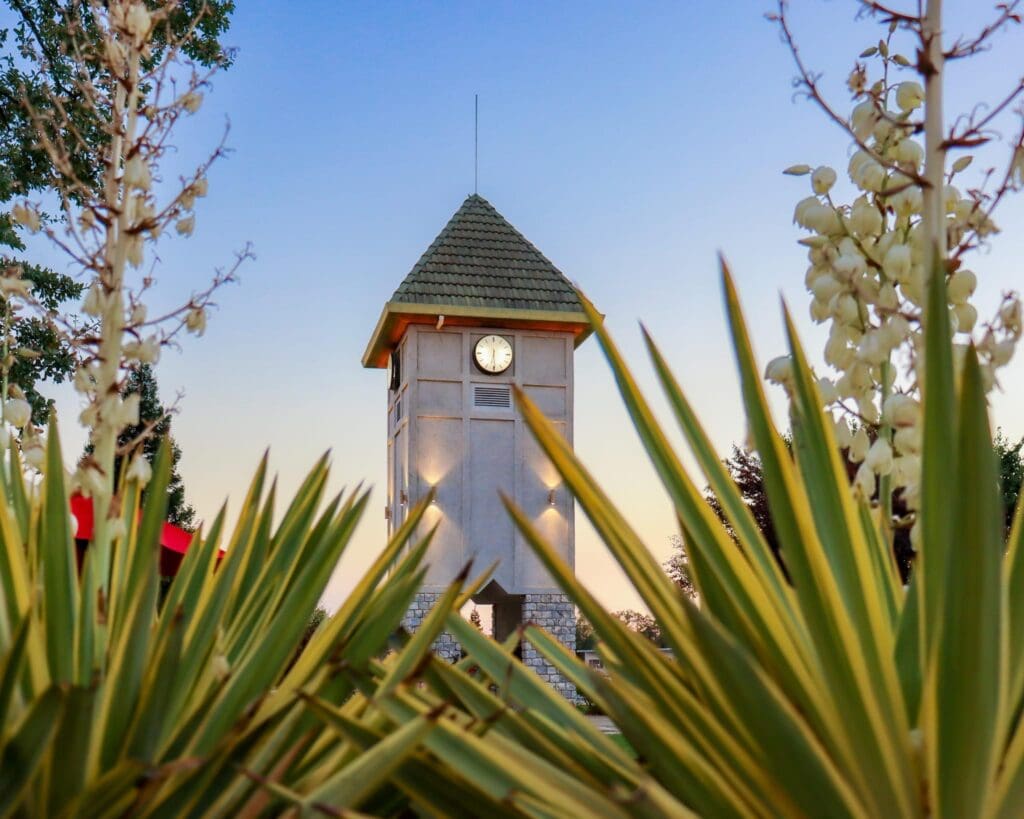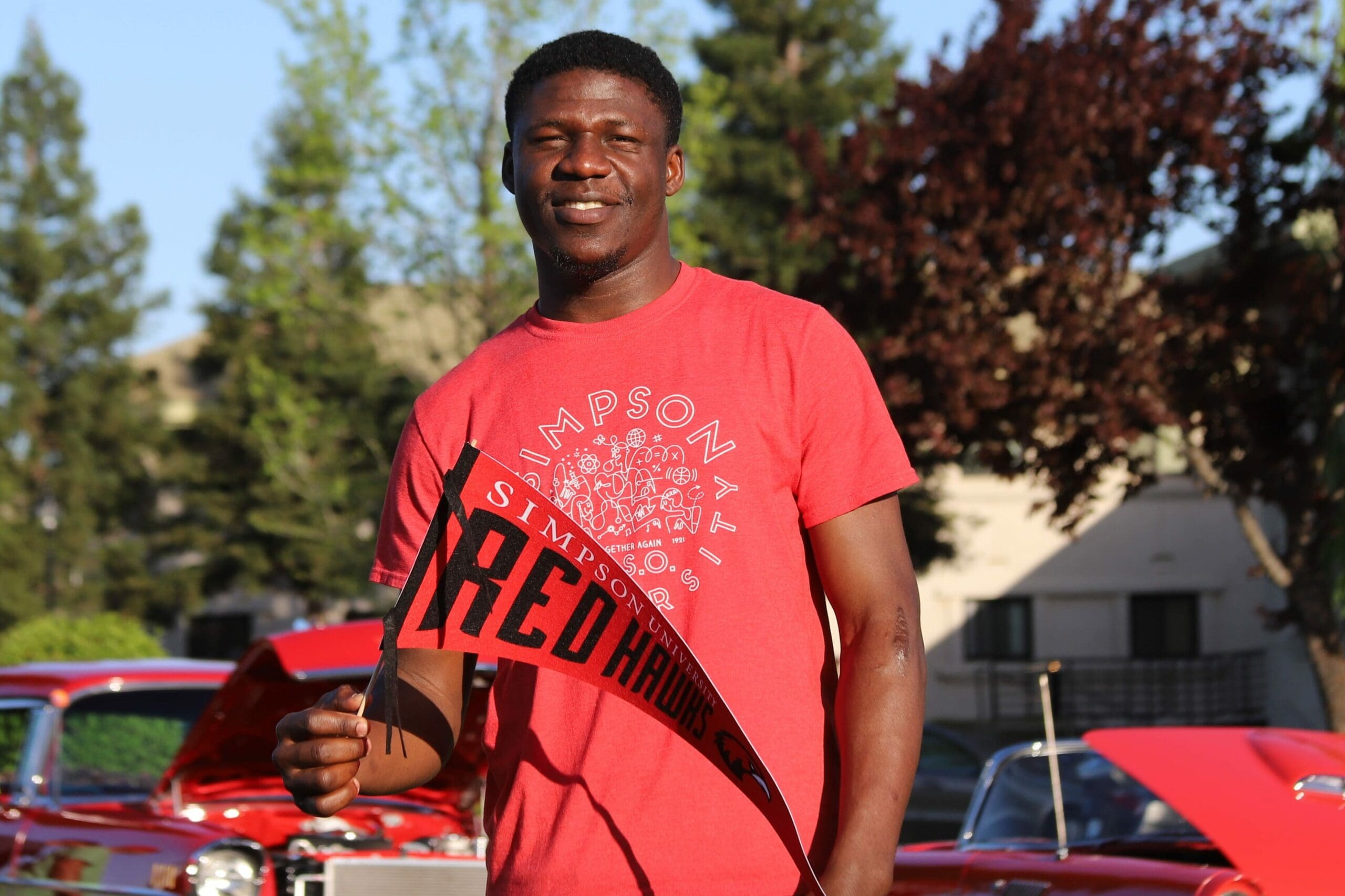Diversity Statement
Simpson University, as a Christ-centered learning community, values each person as a unique and gifted child of God, made in His image and called to live as Jesus lived.
SU, following the example of Christ, is committed to working to establish the Kingdom of God for every tongue, tribe, people and nation. All are called by Him to participate together in a grace-filled community. In valuing diversity, SU encourages each individual to develop his or her own unique gifts, talents, and strengths that will enrich the Simpson community through dialogue, celebration, and peacemaking leading to restored relationships.
SU strives to create a culture of common understanding where diversity is valued. Through the perspectives of each race, sex, ethnicity, culture, socioeconomic status, class, age, and ability, SU is intentionally committed to building an environment that is welcoming and honoring of all where learning is maximized through understanding and acceptance to create excellence in education.
For these reasons, SU commits to do the following:
- celebrate the richness of God’s kingdom and those created in the Imago Dei.
- learn from one another in humility.
- honor people and practice grace.
- build an international and multicultural community through recruitment, education, and collaboration.
- raise our collective awareness of injustice and inequities through education.
- address systemic injustice and inequities through education and institutional leadership.
- create a community where people experience a sense of belonging and are recognized and appreciated for their contributions.
- create a constructive environment where multiple perspectives can be heard.
- model Christ in all of our interactions.
SU does not discriminate on the basis of race, color, national origin, ethnic group identification, sex, age or physical or mental disability. However, as a private religious institution, the University reserves the right to exercise preference on the basis of religion in all of its employment practices and student admissions.
Biblical/Theological Foundations
The Bible embodies an overarching narrative that shows God’s love for and commitment to his creation, which he created to be diverse. Yet biblical authors have diagnosed our world as filled with morally flawed humans, whose relationships and institutions are equally flawed. We have only to reflect on our own experience, read history, or consult local and global news sources to confirm this assessment.
Our thoughts and actions are characterized by estrangement from God and from our fellow-humans; attempts to seek advantage and control at the expense of others; fear and distrust of what we perceive as different; and attempts to blame others to compensate for our own inadequacies (Gen 3:7-13; Gen 27-44; Ecc 4:1, 4; Isa 58-59; James 4:1-4). As a result, society is characterized by pervasive injustice and violence to those whom we perceive as different from us—typically, in gender, race, class, age, sexual orientation, and socio-political affiliations.
The biblical authors argue that God will not abandon this flawed creation, but will radically transform and restore it through Christ. Furthermore, he has summoned us to partner with him and share his commitment to this restoration (Isa 11; 49:6; Matt 5:9; Luke 19:10; Acts 13:47; 2 Cor 5:18-20; Gal 3:28; Col 1:13-20; Rev 5:9-10).
Our response as followers of Christ should be both honest and hopeful. We desire:
- to properly recognize the nature of God, whose creative works are diverse, unique, and to be celebrated (Gen 1-2; Ps 104; 147, 148); who created humans, male and female, in his image (Gen 1:27); who initiates and maintains relationships (Neh 1:5; Gen 17:7; Ezek 16:60; Rev 21:3); who acts counter to human expectations and social norms (1 Cor 1:18-29); who is a God of compassion and liberation (Exod 20:2; Ps 10:17-18; 86:15; Jonah 4:2, 10-11); who is committed to restoring creation by forgiving transgression, overcoming violence, healing sickness, releasing captives, creating peace, and transforming a broken world (Deut 10:18-19; Isa 25:6-9; 61:1-2; Rev 21-22); and who has acted in Christ to minister to the broken, hurting, and socially marginalized (Matt 9:10-13, 36; Luke 4:16-21);
- to recognize and repent from our perpetration of and complicity in personal and institutional injustice (Prov 24:23-25; James 1:27; 2:1-9; 5:1-6; 1 John 3:10-11);
- to identify, resist, and overcome fear of, withdrawal from, and violence to others by honoring and reaching out to them (Prov 14:21, 31; 31:8-9; Zech 7:9-10; 1 Cor 11:18-22, 29; Gal 6:2; Eph 4:31-32; James 3:18; 1 Pet 3:8);
- to be aware of our propensity to ignore or misread Scripture—realizing that self-proclaimed Christ-followers have used the Scriptures to support unjust behavior many times in the past, and have ignored scriptures that challenge injustice. We can resist such misreadings by reading self-critically and in community, and especially by reading Scripture with those different from us;
- to put aside self-interest and love others as ourselves—and love as Christ loved us (Rom 13:8-10; Phil 2:1-7; 1 John 3:16-18);
- to recognize the nature of the body of Christ: that our diversity is a gift of God, that we are one in Christ, and that our status in Christ is not determined by or affected by our differences (1 Cor 12:12-27).
DIVERSITY COMMITTEE
In alignment with the Simpson University diversity statement, the purpose of the Diversity Committee is to educate the campus about the importance of diversity, inclusivity, and cultural sensitivity. We aim to facilitate, plan and support initiatives designed to enhance diversity of the campus while gathering and interpreting information regarding the overall campus climate with respect to diversity. The Diversity Committee reports to the President’s Cabinet regarding initiatives, plans and climate of the campus.
Simpson University faculty, staff and students make up the members of the Diversity Committee, which is chaired by a faculty representative, appointed by the President. Additional non-employee members participate as advisors to help give voice and support to issues faced by our students and community.
CURRENT INITIATIVES AND EVENTS
- Ongoing online and in-person campus trainings related to issues of diversity and inclusion
- Faculty and staff participation in CCCU Diversity and Inclusion Conference
- Staff, faculty and student participation in Biola’s Student Congress on Racial Reconciliation (SCORR)
- The Table – A faculty and staff small group experience meeting two times in one semester for 1 ½ hours each meeting that centers around the person of Jesus and considers topics of diversity and inclusion through the lens of Scripture, the incorporation of a current topic, inclusion of volunteer personal testimony and group discussion.
- Reading and Discussion Groups – A small group experience centered around a particular book option related to the chosen topic of engagement for the year meeting three times in one semester for 1 hour.
- Library display highlighting topic of the year and including print and electronic resources
- Intentional contributions to University Chapel programming
- Diversity Week (October)
The Diversity Committee is committed to helping to facilitate events and programs on campus that spread education, inclusion and healing on the issues regarding diversity. If you have an event or idea that you would like us to partner with, please contact us. Additionally, there are many community and campus resources that we can connect you to if you have specific concerns or questions.




